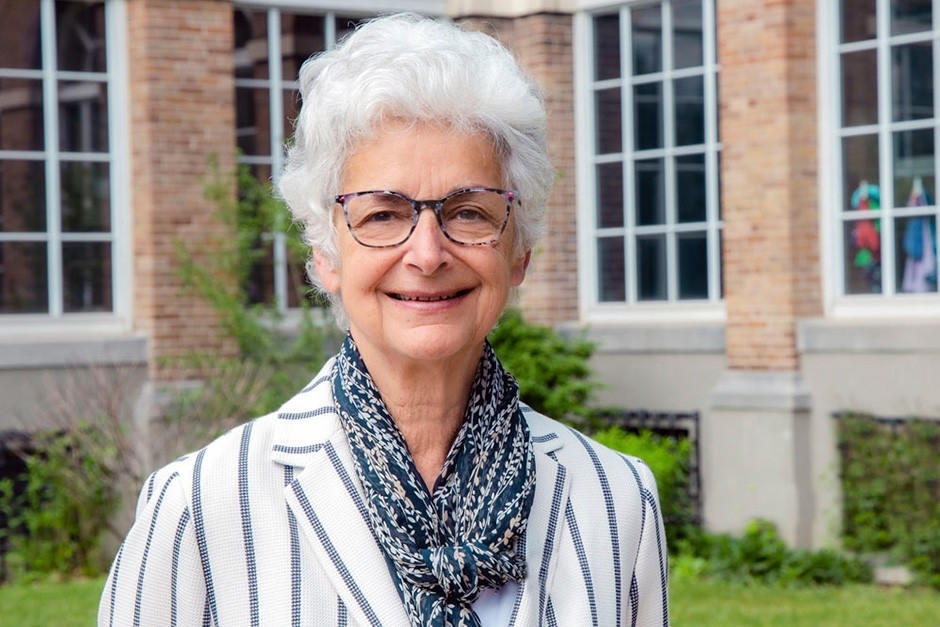Cherished advice that launched a career
 Corinne Charette is a member of the Gina Cody School Advisory Board, former senior fellow at Concordia and former managing director of District 3 Innovation Hub. She served as the Government of Canada’s chief information officer from 2009 to 2015. For her contributions to her industry and community, she was awarded an honorary doctorate from Concordia in 2011 and was named a Great Concordian in 2014.
Corinne Charette is a member of the Gina Cody School Advisory Board, former senior fellow at Concordia and former managing director of District 3 Innovation Hub. She served as the Government of Canada’s chief information officer from 2009 to 2015. For her contributions to her industry and community, she was awarded an honorary doctorate from Concordia in 2011 and was named a Great Concordian in 2014.
“Take a look at the person to your left, and now to your right. Only one out of the three of you will graduate with this class.”
I can still hear these words, spoken during my first year as an engineering student at Loyola College, one of Concordia’s founding institutions, in the early 1970s. They especially stood out for a specific reason: I was one of only three women in that room.
By the time I graduated in 1975 — as part of Concordia University’s inaugural class — I was the only woman of those original three to graduate from the Electrical Engineering program that year.
Now, 50 years later, I look back on my career with a sense of gratitude — mainly to the professors who not only brought expertise to the classroom, but also encouraged women like me to thrive in the male-dominated program. I am indebted, in particular, to the late Stanley Kubina, who headed the faculty on Loyola Campus when I was a student.
Dr. Kubina wasn’t just a kind person, a brilliant thinker and a respected leader in his field — both at Concordia and across Canada — he was also a guiding force in my career, providing me with a key piece of advice that would help shape my future.
In my final year of my undergraduate degree, I found myself at a crossroads. Actively interviewing on campus — and with three job offers from major companies, including IBM — I was also contemplating pursuing a master’s in electrical engineering with a focus on electromagnetic theory.
Dr. Kubina, aware of my dilemma, pulled me aside one day. “I have no doubt that you can do a master’s,” he said. “But I just don’t see you in a lab, I don’t see you doing research. I see you thriving in the corporate world.”
Because I valued Dr. Kubina’s perspective and respected him as a mentor, I followed his advice and took the job at IBM. That decision, guided by his foresight, helped launch my career in information technology and cybersecurity, which later led to a role with the federal government.
When I look at the progress my alma mater has made today, I’m filled with pride. Yes, there is still work to be done in achieving gender parity in my field, but we’ve come a long way from the days when I was the only woman graduating from my program 50 years ago.
I’m particularly inspired by the fact that my former faculty is now called the Gina Cody School of Engineering and Computer Science, named after Gina Cody, MEng 81, PhD 89, a trailblazing entrepreneur and a mentor to engineers of all genders.
Under the leadership of current dean Mourad Debabbi, Concordia’s engineering school has become one of the best in Canada. For a university that is just 50 years old, it is incredible to see such outstanding innovation and talent across departments — and it leaves me hopeful for what’s ahead.